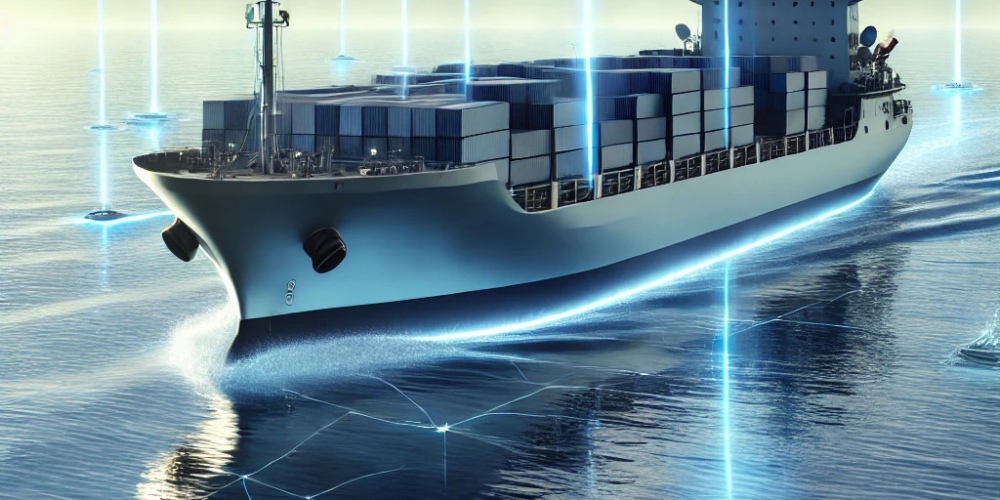
Artificial intelligence (AI) is emerging as a transformative technology in the maritime industry, enhancing efficiency, safety, reducing environmental impact, and optimizing operations. AI-powered applications are revolutionizing a wide range of maritime functions, from route optimization to predictive maintenance.
Route Optimization and Fuel Efficiency
AI-powered route optimization plays a critical role in reducing fuel costs and environmental impact in the maritime industry. AI algorithms analyze variables such as weather conditions, ocean currents, and fuel consumption to determine the most efficient route. This not only enhances energy efficiency but also shortens travel time, supporting overall operational effectiveness.
Predictive Maintenance and Equipment Monitoring
Equipment failures on ships can lead to significant costs and operational downtime. Predictive maintenance allows continuous monitoring of equipment health through AI algorithms that analyze sensor data. AI systems assess the performance of equipment and predict potential failures, alerting for maintenance needs in advance. This prevents delays due to breakdowns and reduces maintenance costs.
Safety and Hazard Detection
Artificial intelligence offers substantial advantages in enhancing safety in the maritime industry. AI-powered security systems, integrated with camera and sensor networks, can detect potential hazards and enable rapid response. For example, AI can monitor temperature fluctuations on board to detect fire risks early or identify obstacles at sea, reducing collision risks.
Cargo and Logistics Management
AI significantly impacts cargo management and logistics processes. In cargo loading and unloading, AI-based systems optimize the positioning of containers, allowing for faster and more efficient operations. Additionally, AI-driven logistics analysis and demand forecasting make port operations more effective, increasing customer satisfaction.
Energy Efficiency and Reducing Environmental Impact
AI technologies offer various solutions to enhance energy efficiency and reduce environmental impact in the maritime industry. AI algorithms optimize factors like energy consumption, emissions, and fuel use, supporting environmentally friendly operations. AI systems also enable emission monitoring to ensure compliance with environmental regulations.
Autonomous Ships and the Future of Maritime Transport
One of the most exciting applications of AI in maritime is autonomous ships. AI-powered autonomous vessels can navigate and make decisions independently with minimal human intervention. Autonomous ships determine optimal routes, analyze weather and ocean conditions, and make safety-conscious decisions through AI algorithms. The widespread adoption of autonomous ships has the potential to make the maritime industry safer, more efficient, and sustainable.
The Future of AI in Maritime
AI in the maritime industry promotes operational efficiency while also encouraging environmental sustainability. With applications such as route optimization, predictive maintenance, safety, cargo management, and autonomous ships, AI is steering maritime transport toward a more innovative, safe, and eco-friendly future. As AI technologies continue to evolve, we are witnessing the beginning of a new era in maritime transport.
These AI-powered applications not only drive cost savings in maritime operations but also contribute to the sector’s digital transformation, paving the way for a sustainable model for future generations.


